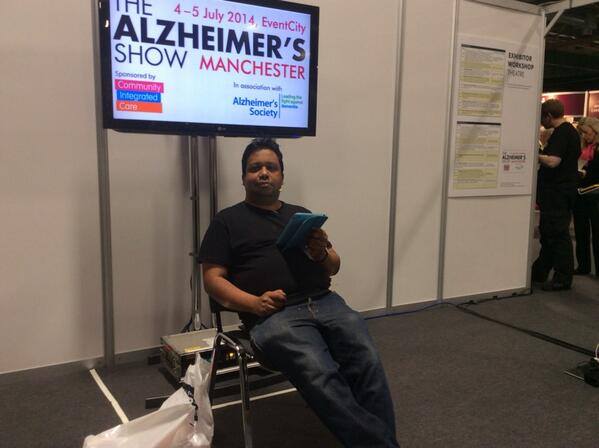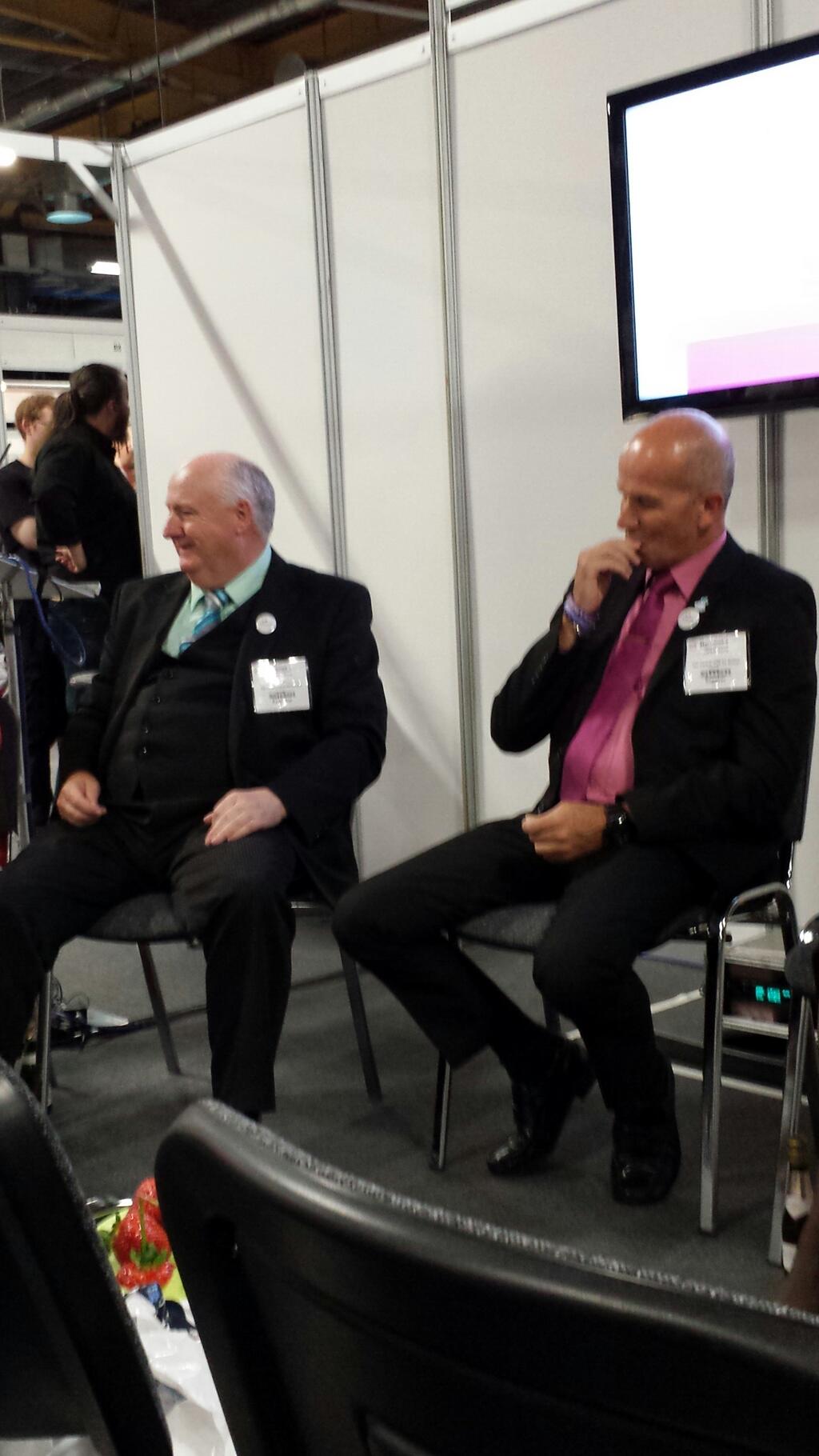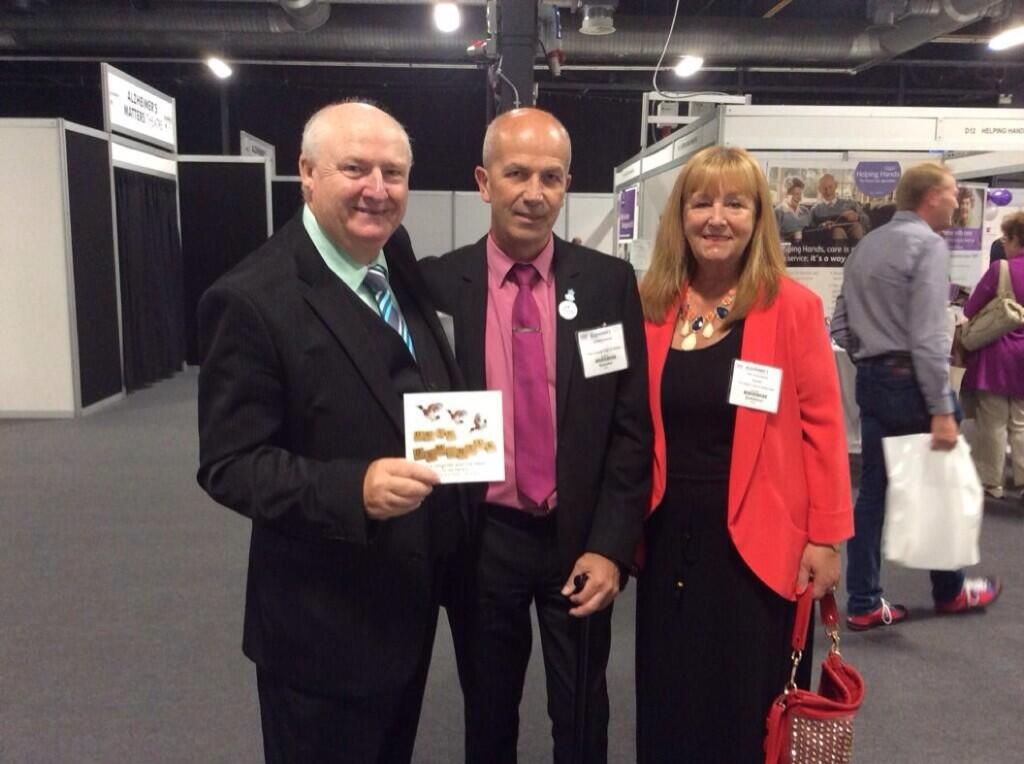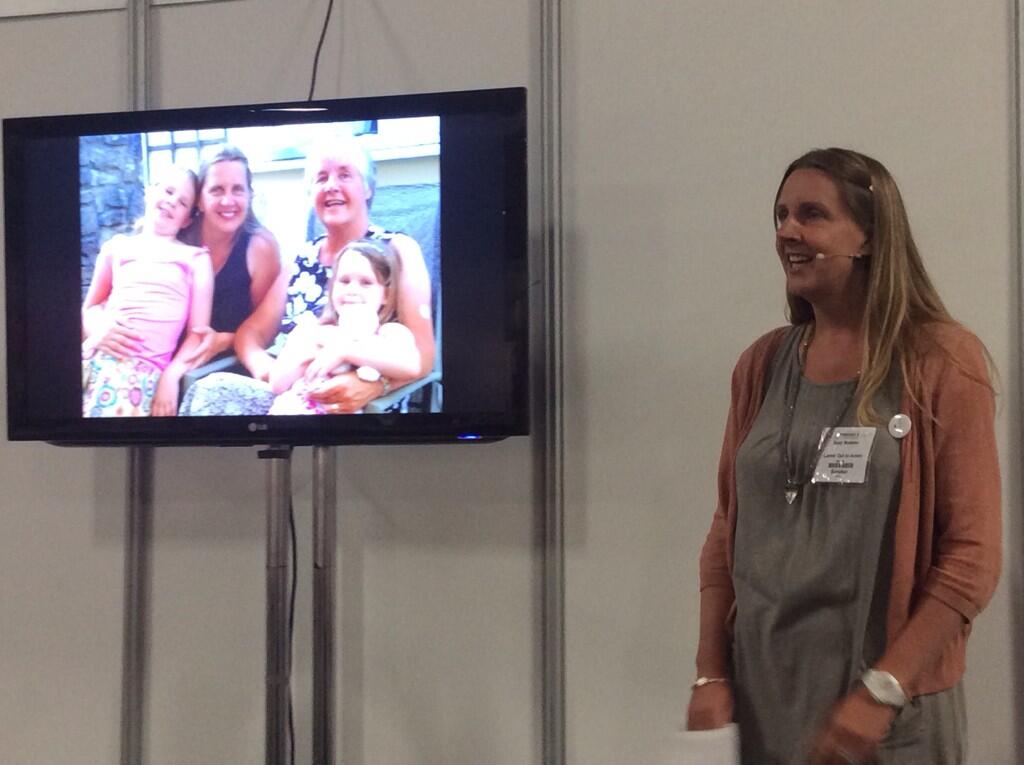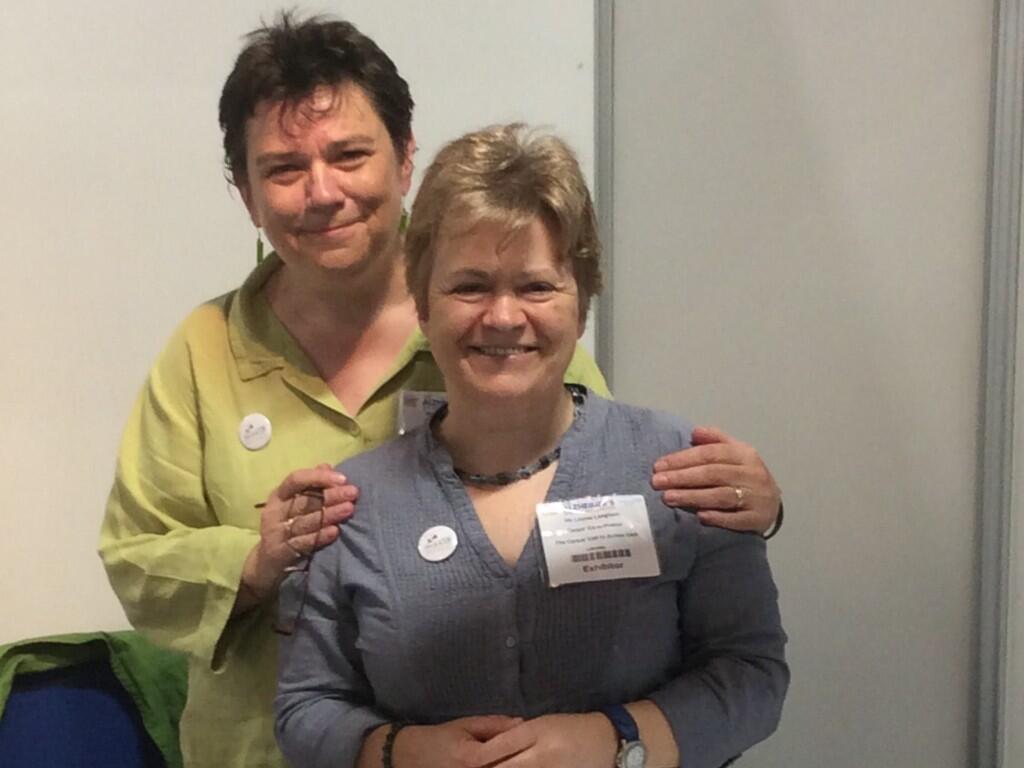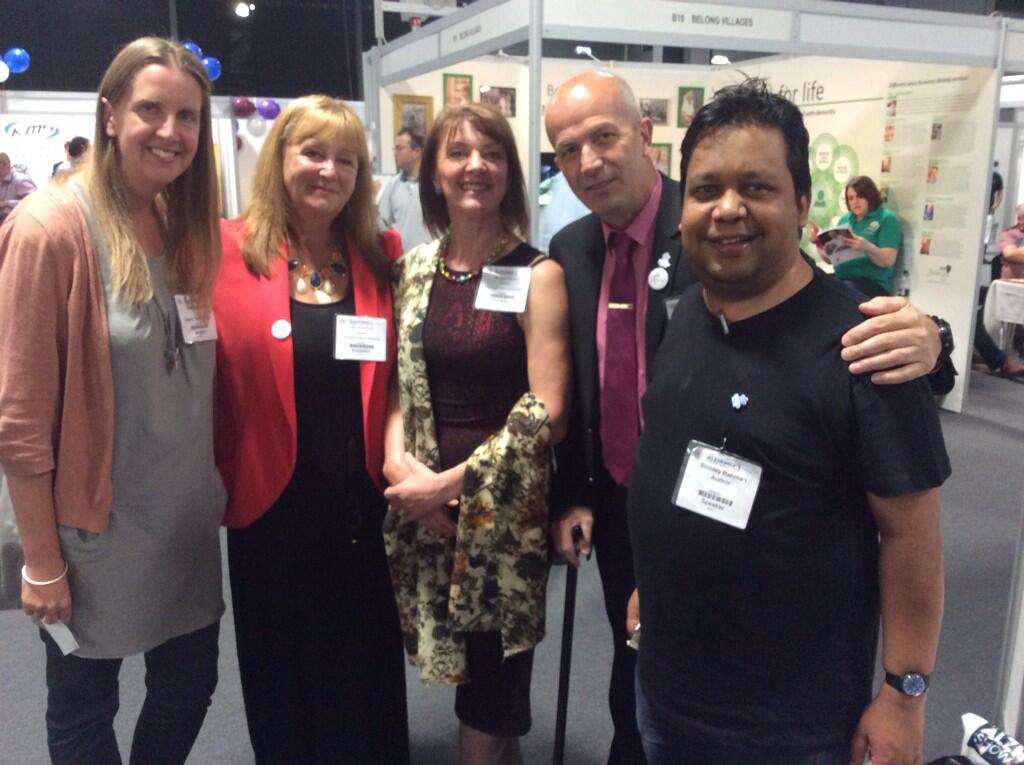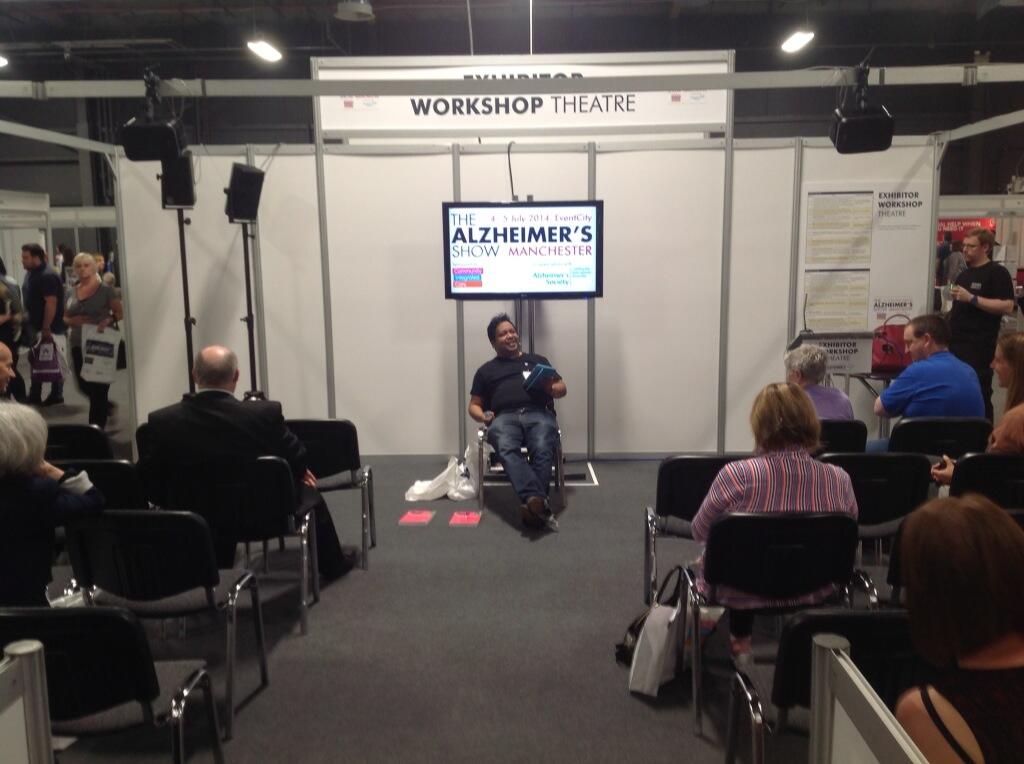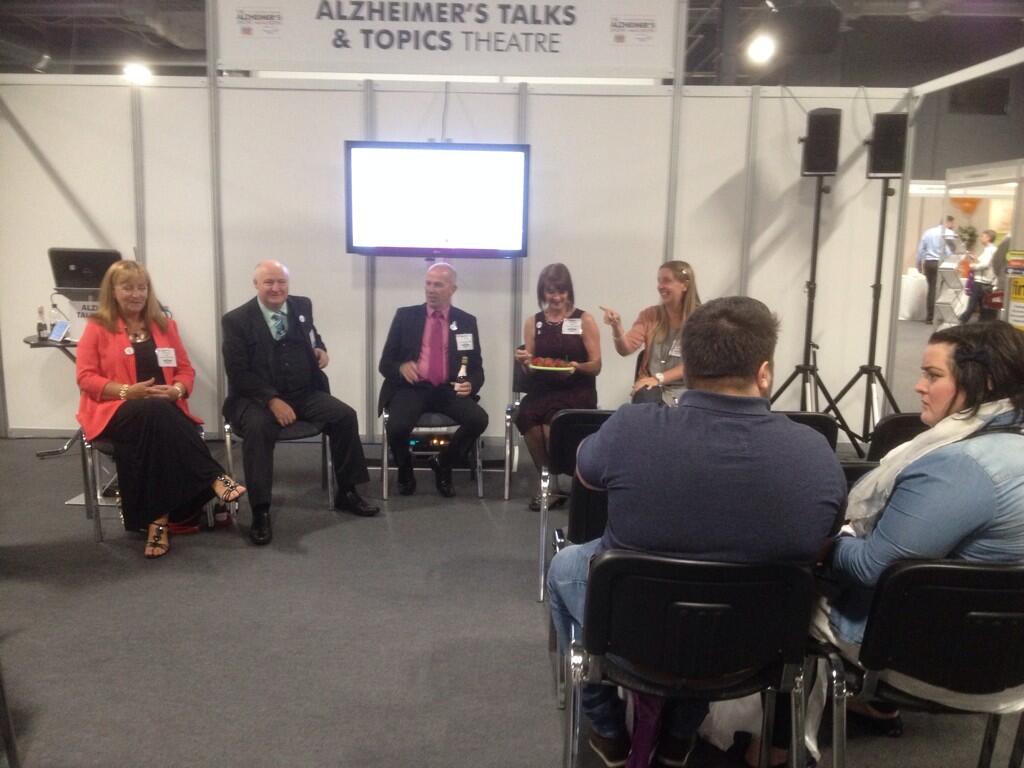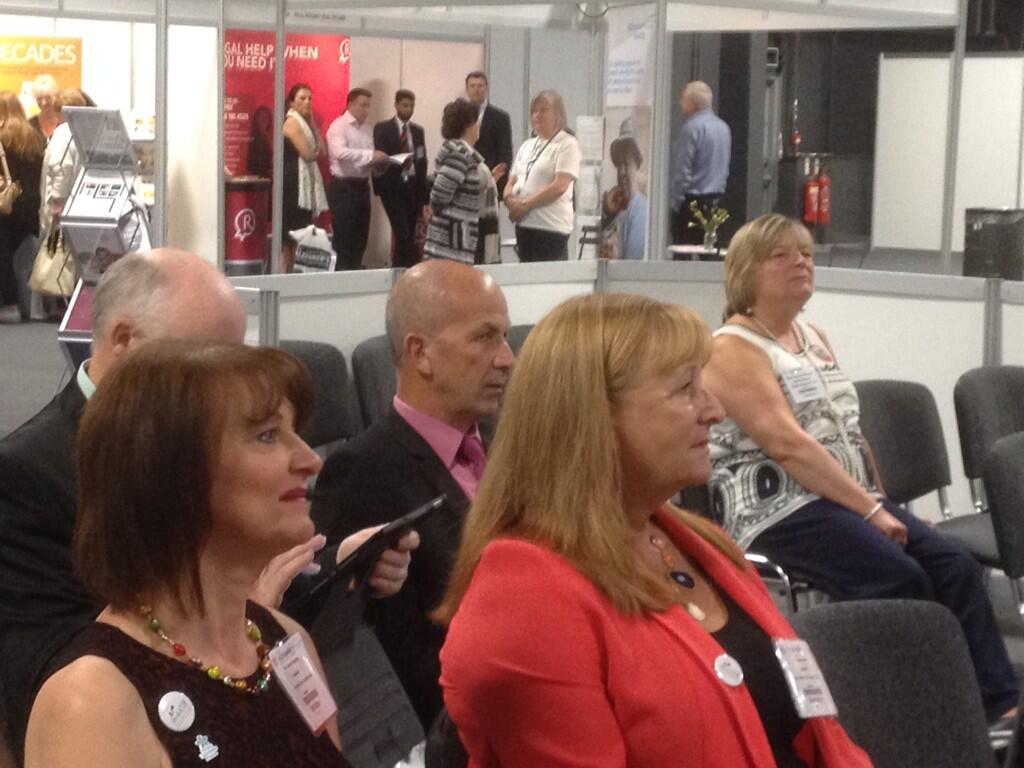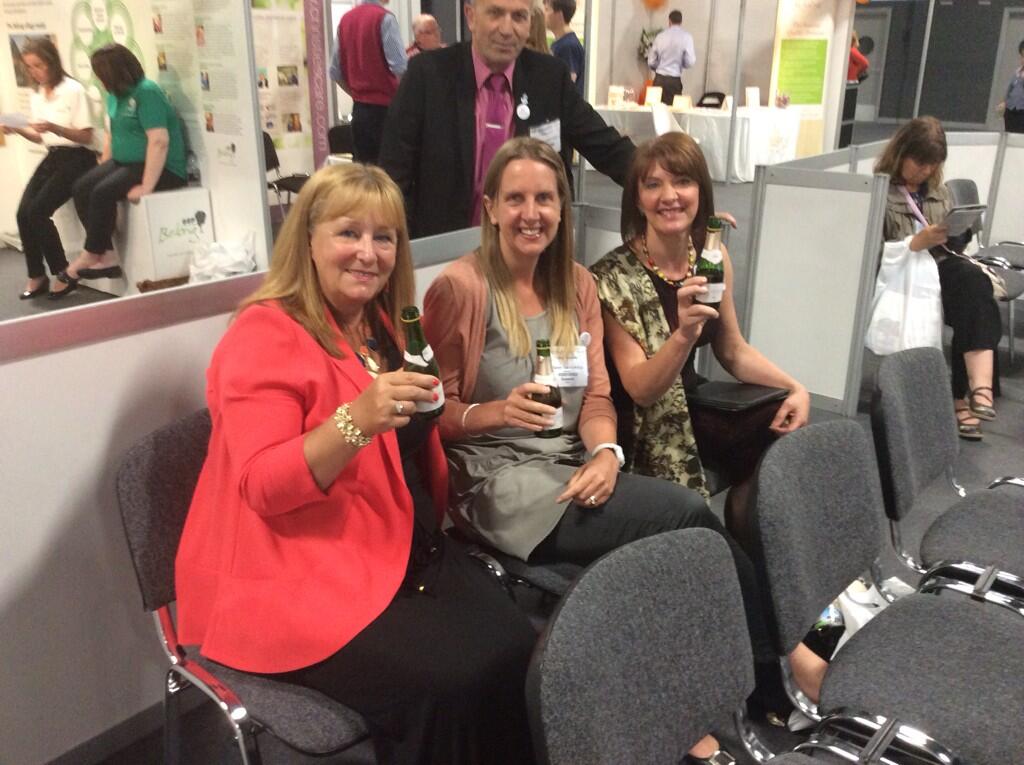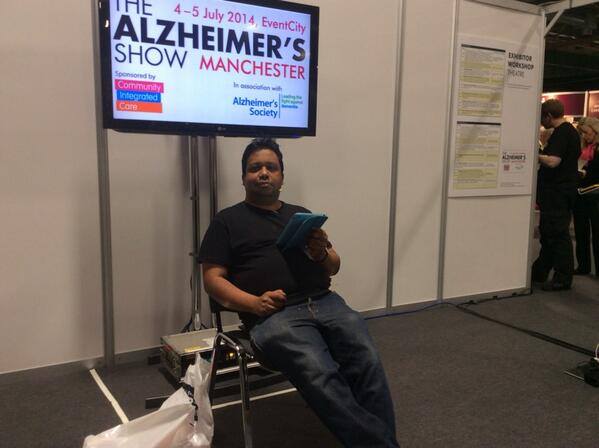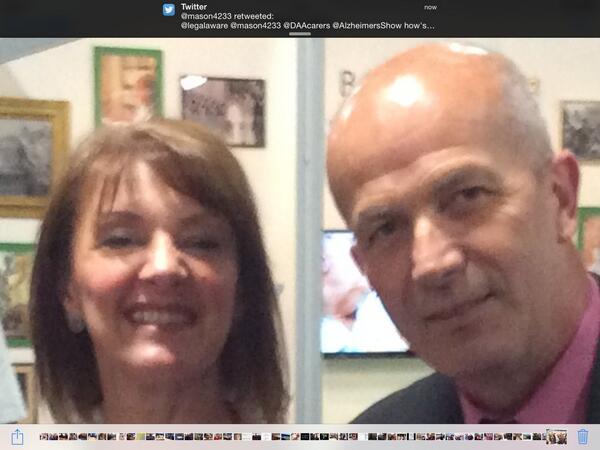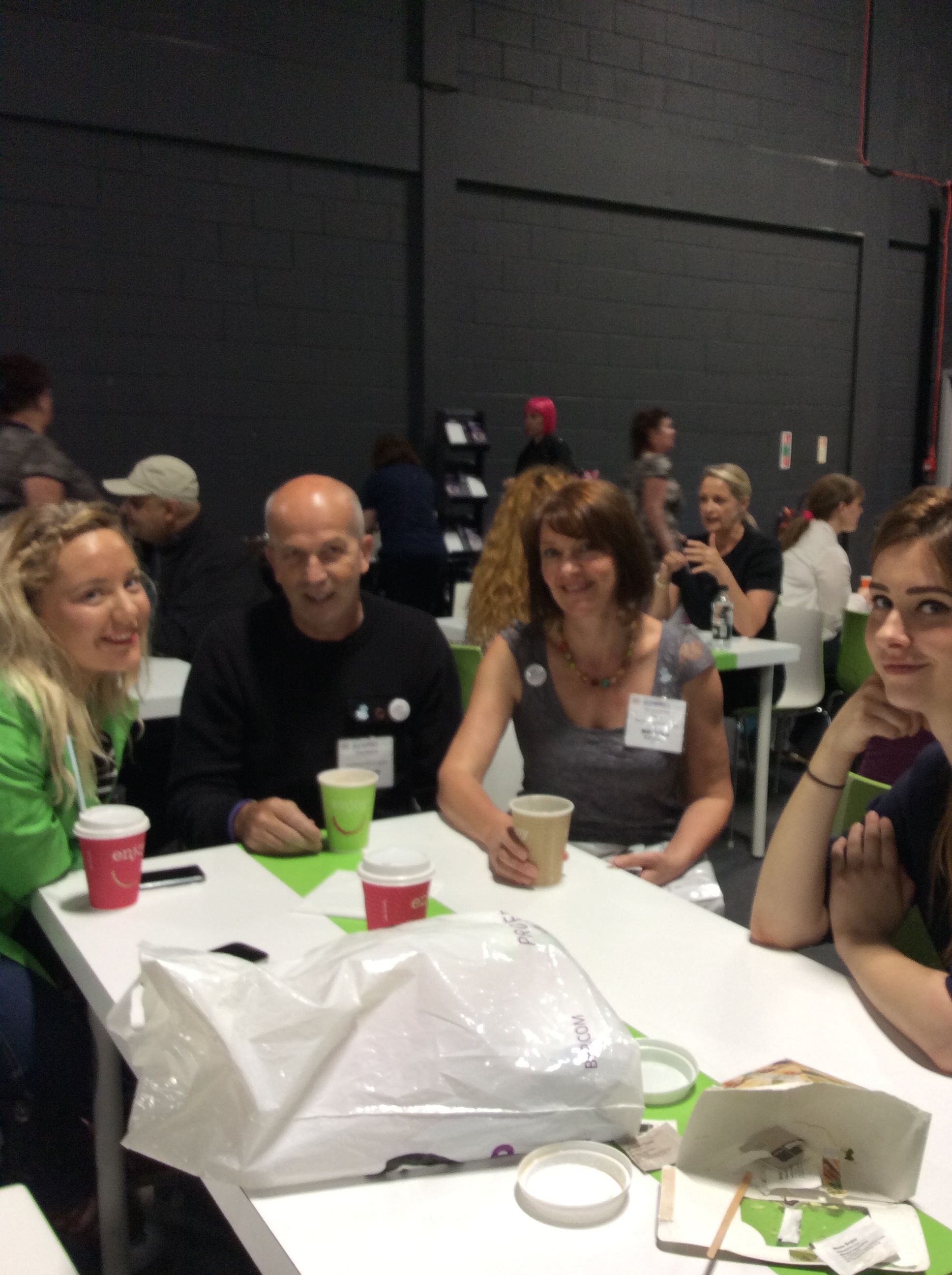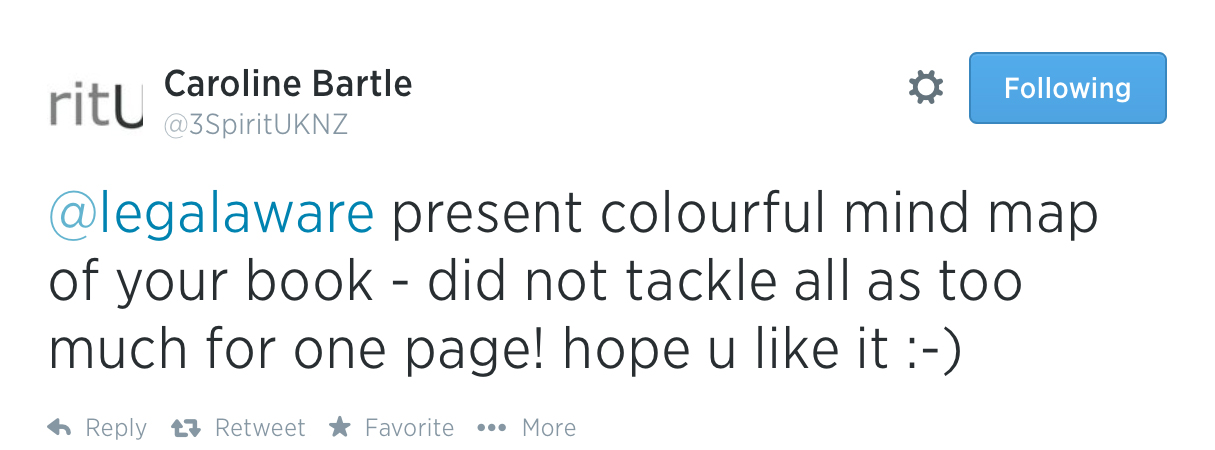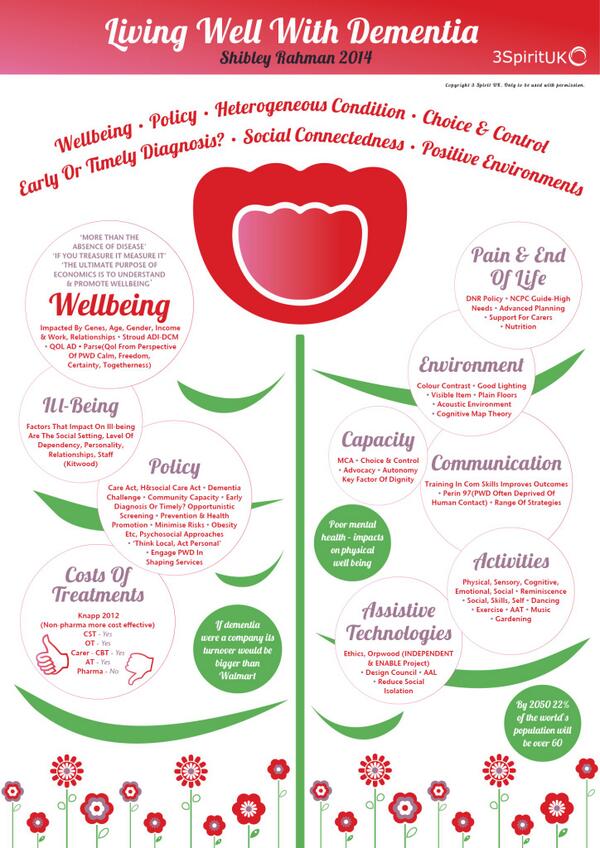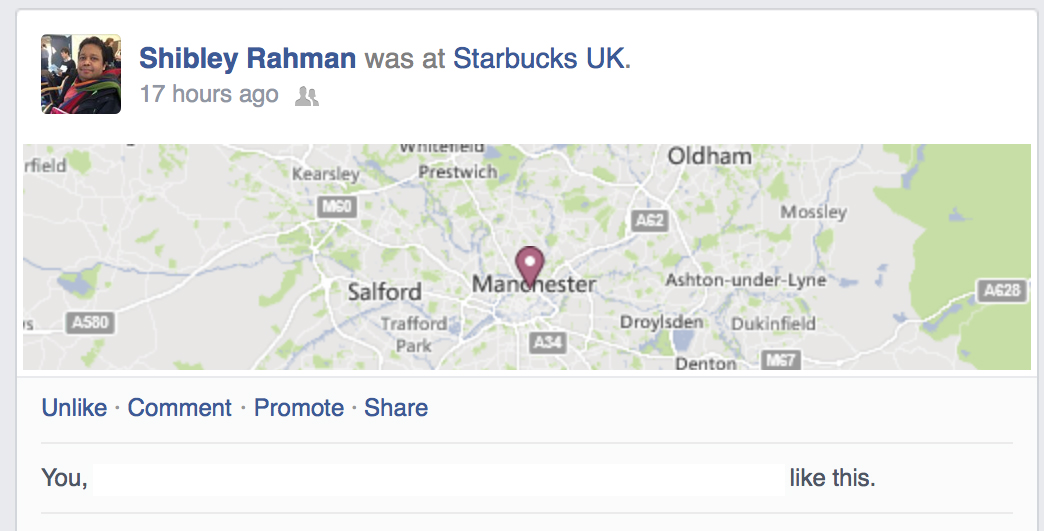“McLaughlin: Leadership has so many definitions that sometimes that term loses its meaning. How do you define it?
Kouzes: Leadership is the art of mobilizing others to want to struggle for shared aspirations. That part about struggling for shared aspirations may set our definition apart.”
I’ve also been though the motions of detailed study of leadership styles in my own MBA.
But this definition of James Kouzes really struck a chord with me.
This is of course not a particularly impressive ‘leadership style’, one sedentary guy with an iPad mini with a large product placement in shot?
I have fleetingly thought too about who is the exact target audience of my book.
While ‘Living well with dementia’ is not a ‘self help book’, it is a fact that many people living well with dementia have warmly received the book.
In fact, in the front row in my line of vision to the left, two people sat, a son and his mother with dementia.
It turns out the son found my talk ‘inspiring’, and thanked me, in front of his mother, for saying which he perceived as powerful: that it’s more important to concentrate on what people can do in the present, rather than they cannot do.
And what did I conclude was the driving intention of an international policy plank about living well with dementia?
I concluded that a positive wellbeing is about a person being content with himself or herself, and his or her own environment.
This is not an issue of being drugged up with a ‘cure for dementia’. It is though saying something equally positive about dementia, if not more positive.
I do not consider the Alzheimer’s Show an “event with a buzz”. For me, it was like a wedding of a best friend. I was thrilled to meet Chris, Jayne, Suzy, Rachel, Louise, Natasha, Joyce, Nigel, Tracey, Tony, and Tommy, some for the first time.
And what you see is what you get with them.
Chris concluded, “Living better with dementia would’ve been a better title.”
And Tommy agreed.
Chris and Tommy live well with dementia.
I agreed too. In a nutshell, ‘living well with dementia’ runs the danger of imposing your moral judgment or ‘standards’ on what living well with dementia is.
For me, living well in alcoholic recovery means not downing a bottle of neat gin when I get up, like I used to do in late 2006/early 2007 when I hit a rock bottom. (The actual rock bottom was when I had a cardiac arrest and epileptic seizure heralding a six week coma in the summer of 2007, rendering me physically disabled.)
But it’s a big thing for me that people who are living well with dementia are actually interested in – and supportive of – my book.
You see, I concede that I don’t live with a dementia yet to my knowledge – though many London cabbies conclude that I do [nicely], when I tell them the title of my book and they see me struggling get into their cab.
Chris pointed out something at first glance very true today – that I didn’t have many friends living with dementia as friends then, when I was writing my book.
Chris is in fact wrong. “Any” not “many”.
Tommy said something curious recently, that it’s ironic that it took an event such as the Alzheimer’s Show in Manchester to bring us all together.
But he’s right. We’re not there for any other reason than to share experiences.
Suzy commented that ‘I get it’. And I do think do, for all sorts of reasons, many of which were quite unintended.
I am currently writing ‘Living better with dementia: champions challenging the boundaries”. It’s going to be a toughie, but I think I can do it.
If only Kate were there too…
